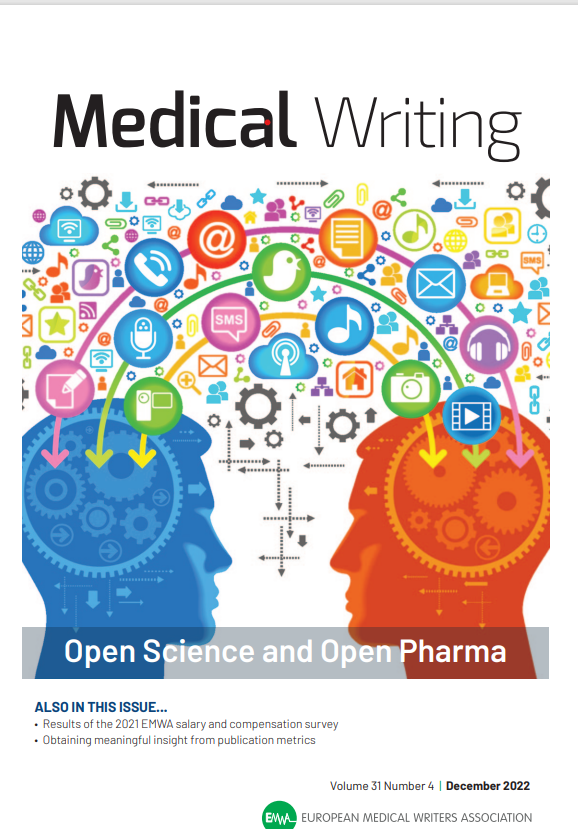
Volume 31, Issue 4 - Open Science and Open Pharma
Enabling people with disabilities: Creating accessible electronic documents
Author: Jeffry Ricker
Abstract
Rather than equating disability with personal identity, we can better understand disability as the consequence of disabling environments. This alternative view suggests that changing the environment can enable people with sensory, motor, and cognitive/learning impairments to participate more fully in everyday life. This view is also consistent with the goal of medical writers to be aware of their audience (i.e. their relevant abilities/skills, cultural beliefs, and knowledge base). To achieve this goal, we must strive to create electronic documents that can be perceived and understood by people with a variety of impairments.
The main objectives of this article are:
- to increase awareness of the difficulties caused by inaccessible electronic documents
- to describe guidelines for creating accessible electronic documents
- to provide resources for continuing education
Medical Writing. 2022;31(4)32-36. https://doi.org/10.56012/ctbt2242
 Download the full article
Download the full article
Search
Articles
Links
Editoral Board
Editor-in-Chief
Co-Editors
Senior Editor
Victoria White
Managing Editor
Alicia Brooks Waltman
Associate Editors
Section Editors
AI/Automation
Biotechnology
Digital Communication
EMWA News
Freelancing
Gained in Translation
Getting Your Foot in the Door
Good Writing Practice
Pablo Izquierdo / Alison McIntosh
In the Bookstores
Publications
Medical Communications/Writing for Patients
Medical Devices
My First Medical Writing
News from the EMA
Pharmacovigilance
Regulatory Matters
Regulatory Public Disclosure
Louisa Ludwig-Begall / Sarah Kabani
The Crofter: Sustainable Communications
Veterinary Writing
Editors Emeritus
Layout Designer
Chris Monk
 Visit the EMWA website
Visit the EMWA website